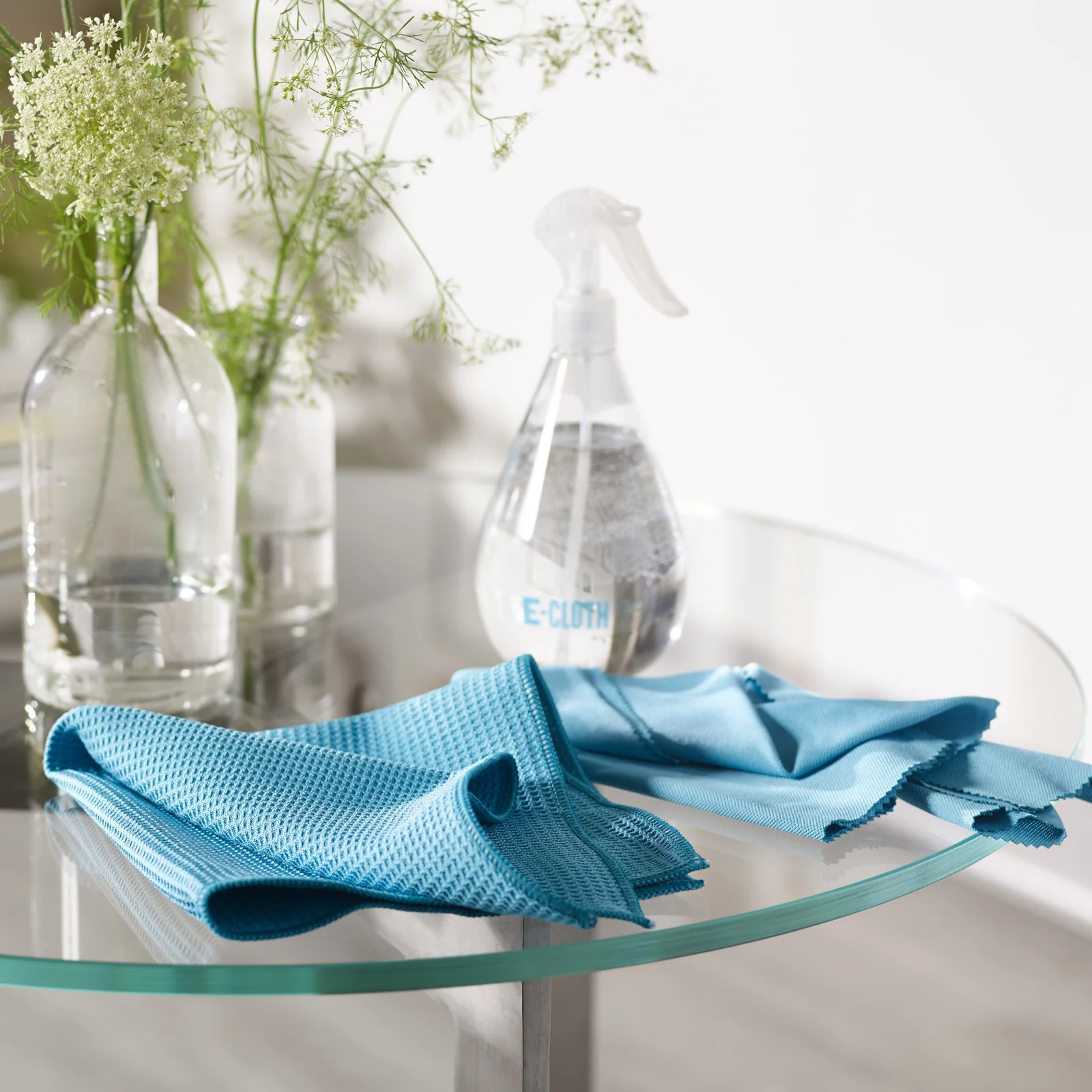Table of content:
How Often You Should Clean Your Towels
Consequences of Skipping Towels Cleaning
DIY Methods to Clean Your Towels
Keeping your towels clean is essential for both hygiene and comfort, but knowing how often to wash them can make a big difference in their freshness and longevity. Bath towels typically need laundering every 3-4 uses to prevent the buildup of moisture, oils, and microbes that can lead to unpleasant odors and reduced absorbency. Other towels, like those used in the kitchen or for your face, may require more frequent washing due to their higher exposure to dirt and bacteria. By following a regular cleaning routine, you’ll not only keep your towels soft and effective but also maintain a fresher, more inviting bathroom environment.

A Clean You Can See
Our high-performance microfiber products simplify cleaning, making it quick, easy, and effective, so you can enjoy visible results without the fuss. No streaks, just results.
How Often You Should Clean Your Towels
How Often to Wash Towels
When you use a towel, it picks up moisture, oils, and skin cells that build up over time. For bath towels, experts generally recommend washing them every 3-4 uses.
This frequency strikes a practical balance: it keeps the towel feeling fresh and absorbing well, without requiring daily laundering. When a towel remains damp for too long, even with a good air-drying routine, it can develop a musty smell due to the natural uptick in microbial activity, which is why regular washing is important.
- Moisture and Residue: Every use deposits a bit of moisture and residue on your towel. Washing every few uses helps remove this buildup, ensuring your towel remains both fresh and effective.
- Air Exposure: Even though a well-hung towel dries faster, environmental humidity or insufficient air flow can lead to lingering damp spots. This reinforces the need to launder it on a regular schedule.
- Usage Context: If you use your towel after workouts or if you’re sharing it with others, opting for the shorter end of the range maintains better overall hygiene and comfort.
Special Considerations for Other Towels
- Kitchen and Hand Towels: These come into contact with food and hands frequently. Washing them daily or even more often is ideal since they can pick up spills and debris more readily.
- Face Towels: If you’re using a specific towel for your face, consider washing it more often to avoid any potential build-up from skin oils or makeup residue.
Ultimately, these recommendations are about keeping your towels both pleasant to use and in peak performance. Adjust the frequency a bit if you notice a persistent odor or if storage conditions aren’t ideal for quick drying.
Streak-Free Wherever You Need It
E-Cloth is committed to delivering a clean you can see—effortlessly erasing messes with just water for a spotless shine, free of streaks and added chemicals.

Consequences of Skipping Towels Cleaning
Consequences of Skipping Towels Cleaning
- Unpleasant Odors Take Over
When towels aren’t cleaned regularly, they start to develop a musty, sour smell that can linger in your bathroom and on your skin. That odor is a sign that your towel is holding onto moisture and organic matter—basically, it’s a party for odor-causing microbes. - Stubborn Stains and Discoloration
Towels that go too long between washes can develop stains from body oils, lotions, and even makeup. Over time, these stains set in, making your towels look dingy and worn out, no matter how much you try to revive them later. - Reduced Absorbency
A towel’s job is to dry you off, but when it’s loaded with residue from skin, hair products, and hard water minerals, it loses its absorbency. You’ll notice your towel just pushes water around instead of soaking it up—frustrating, right? - Skin Irritation and Breakouts
Dirty towels can transfer grime and residue back onto your skin, which may lead to irritation or clogged pores. If you’re already dealing with sensitive skin, skipping towel cleaning can make things worse. - Shorter Towel Lifespan
Letting dirt and residue build up in your towels wears down the fibers faster. This means your towels will lose their softness, start to fray, and need to be replaced sooner than if you kept them clean. - Unwanted Guests (Microbes)
A damp, unwashed towel is a cozy environment for microbes to multiply. While towels don’t need to be sterile, regular cleaning helps wipe away the buildup that can make towels less pleasant to use. - Bathroom Looks and Feels Less Fresh
Let’s be honest: a stack of clean, fluffy towels makes your bathroom feel like a spa. Dingy, smelly towels? Not so much. Keeping towels clean is a simple way to boost the vibe of your whole space.
DIY Methods to Clean Your Towels
.svg)
White Vinegar and Hot Water
Mix one cup of white vinegar with one cup of hot water in a large bowl or basin. Soak your towels in the solution for 30 minutes, then wash as usual. This method helps remove odors, soften towels, and eliminate detergent buildup naturally.
.svg)
Baking Soda and Warm Water
Dissolve half a cup of baking soda in a bucket of warm water. Soak towels in the solution for 30 minutes, then wash as usual. This method helps remove odors, soften fibers, and restore towel freshness naturally.
.svg)
Lemon Juice and Warm Water
Mix equal parts lemon juice and warm water in a bowl or bucket. Soak the towels in the solution for 30 minutes, then wash as usual. The lemon juice helps break down odors and stains, leaving towels fresh and clean.
.svg)
Borax and Warm Water
Dissolve half a cup of borax in a gallon of warm water. Soak towels in the solution for several hours, then wash as usual. This method helps remove odors, buildup, and restores towel softness.
.svg)
Residual Odor Persistence
White vinegar and hot water may not fully eliminate deep-set odors in towels, leaving a residual smell. This can happen if bacteria or mildew remain after cleaning, especially in heavily soiled or older towels.
.svg)
Bacterial Growth Risk
Using only baking soda and warm water may not effectively kill bacteria on towels, increasing the risk of bacterial growth and unpleasant odors. This method lacks the disinfecting power needed for thorough cleaning and hygiene.
.svg)
Color Fading Concern
Lemon juice is acidic and can cause towel colors to fade over time, especially when combined with warm water. This method may strip dyes from the fabric, leading to noticeable discoloration or uneven color patches after repeated use.
.svg)
Incomplete Deep Cleaning
Borax and warm water may not fully remove deep-set stains, odors, or buildup in towels, leading to incomplete deep cleaning. This DIY method can leave residues behind, resulting in towels that still feel unclean or musty.
Ready for an Easier Way to Clean?
Skip the mixing, spraying, and scrubbing. With E-Cloth, you get a streak-free shine using just water—no added chemicals, no hassle. Make every window sparkle the simple way.
Explore other Articles
Headphones
Learn how often to clean your headphones for optimal sound and hygiene. Simple tips to keep them fresh and lasting longer.
Bookshelves
Discover the ideal frequency to clean your bookshelves for a dust-free, organized, and fresh home library.
Jeans
Discover the ideal frequency to clean your jeans for lasting style, comfort, and fabric care. Keep them fresh and durable!
Range hood filter
Learn how often to clean your range hood filter for optimal kitchen air quality and appliance efficiency. Keep it fresh and safe!
Washing machine
Learn how often to clean your washing machine for optimal performance and freshness. Keep your laundry fresh and your machine efficient!
Garage floors
Discover the ideal frequency for cleaning your garage floors to keep them spotless and well-maintained year-round.
Experience Real Cleaning
A Clean You Can See
Experience Real Cleaning


